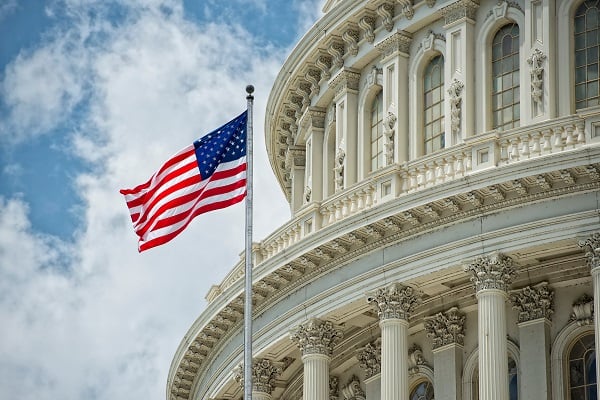Proactive Risk Management in the Face of Opposition to Data Centers and Crypto Mining
The rapid growth of artificial intelligence (AI), cloud computing, and cryptocurrency continues to drive unprecedented U.S. demand for energy. This acceleration is encountering an increasingly organized wave of opposition, particularly to the siting of electric generation assets required to operate data centers and crypto mining facilities. A new report from the Environmental Integrity Project (EIP), A Pollution Footprint the Size of Texas, sharply criticizes the permitting of new natural gas power plants in Texas — many of which are being built for proposed to power data centers and crypto mines.
Department of Energy Blocks Shutdown of Coal-Fired Power Plant and Oil- and Gas-Fired Generator Units With Federal Emergency Orders
On May 23, 2025 and May 30, 2025, the Department of Energy (DOE) issued two emergency orders under its Federal Power Act (FPA) Section 202(c) authority effectively delaying the closure of two power plants. DOE Order No. 202-25-3 (hereinafter, the Campbell Order) requires the Midcontinent Independent System Operator (MISO) and Consumers Energy to “take all measures necessary” to ensure that the 1,560 MW coal-fired J.H. Campbell Power Plant (Campbell Plant) in West Olive, Michigan — originally slated for retirement on May 31, 2025 — is “available to operate” until the expiration of the order on August 21, 2025. DOE Order No. 202-25-4 (hereinafter, the Eddystone Order) similarly requires PJM Interconnection (PJM) and Constellation Energy to keep 760 MW of oil- and gas-fired peaking capacity — also set to retire on May 31, 2025 — at the Eddystone Generation Station (Eddystone Station) in Pennsylvania available until August 28, 2025. There is also the potential of extensions of these expiration dates.

Three Takeaways from the Trump Administration’s Latest Push for Shifts in Domestic Energy Production
On April 8, 2025, President Trump issued three executive orders reflecting the Administration’s push for increased domestic coal production. The orders point to the surge in electricity demand from data centers and other infrastructure required to support Trump Administration goals, including becoming a leader in artificial intelligence (AI), as a key rationale. Here are three takeaways from these orders.

Top 5 Energy Actions You Should Know from President Trump’s First Day
On January 20, 2025, President Trump began his second term with the signing of 26 executive orders (EOs), which included the recission of almost 80 EOs of the previous administration. Trump’s orders contain both repeals of key Biden Administration policies and calls to agency action to reassess treatment of major energy issues associated with domestic energy production. Here are the top five actions to know from President Trump’s first day as the new administration begins its reshaping of U.S. energy policy for his second term in office.
U.S. EPA Power Plant Effluent Rule Allowed to Go Into Effect
On October 9, 2024, the Eighth Circuit refused to block new U.S. Environmental Protection Agency (EPA) wastewater limits for coal-fired power plants. In Southwestern Electric Power Co., et al v. EPA, et al, multiple states, trade groups, and utility companies challenged EPA’s May 2024 Supplemental Effluent Limitations Guidelines and Standards for the Steam Electric Power Generating Point Source Category (ELG Rule).
Congress Passes ADVANCE Act to Facilitate U.S. Development of Advanced Nuclear Reactors
On June 18, 2024, the U.S. Senate passed the Accelerating Deployment of Versatile, Advanced Nuclear for Clean Energy (ADVANCE) Act to accelerate the deployment of nuclear energy capacity, including by accelerating the licensing and creating new incentives for advanced nuclear reactor technologies, among them small modular reactors. The Senate introduced the ADVANCE Act in March 2023, and the House of Representatives passed the Fire Grants and Safety Act, which contains the ADVANCE Act, on May 8, 2024. Now that both houses have passed the Act, it will go to President Joe Biden for signature. Full text of the ADVANCE Act as passed by the Senate can be found here on page 4.
FERC Approves New Extreme Cold Weather Reliability Standards
On February 16, 2023, the U.S. Federal Energy Regulatory Commission (FERC) approved two new North American Electric Reliability Corporation (NERC) Reliability Standards: EOP-011-3 (Emergency Operations) and EOP-012-01 (Extreme Cold Weather Preparedness and Operations). The new standards stem from FERC and NERC’s joint inquiry into Winter Storm Uri — the February 2021 winter storm event that led to the largest controlled firm load shed event in U.S. history, with over 4.5 million people losing power and at least 210 people losing their lives. The joint inquiry resulted in the issuance of a November 2021 report that included recommendations for NERC reliability standard enhancements to improve extreme cold weather operations, preparedness, and coordination. The November 2021 report found that the bulk power system “cannot operate reliability without adequate generation.”[1]
FERC Opens 2023 With Leadership Transition
Former U.S. Federal Energy Regulatory Commission (FERC or the Commission) Chairman Richard Glick has officially departed the independent Commission after failing to secure a reconfirmation hearing before the Senate in December 2022. Glick’s departure leaves the Commission with a 2–2 split between Democrats and Republicans that could stall a number of major initiatives that were ongoing under the former Chairman and the Commission’s Democratic majority.


